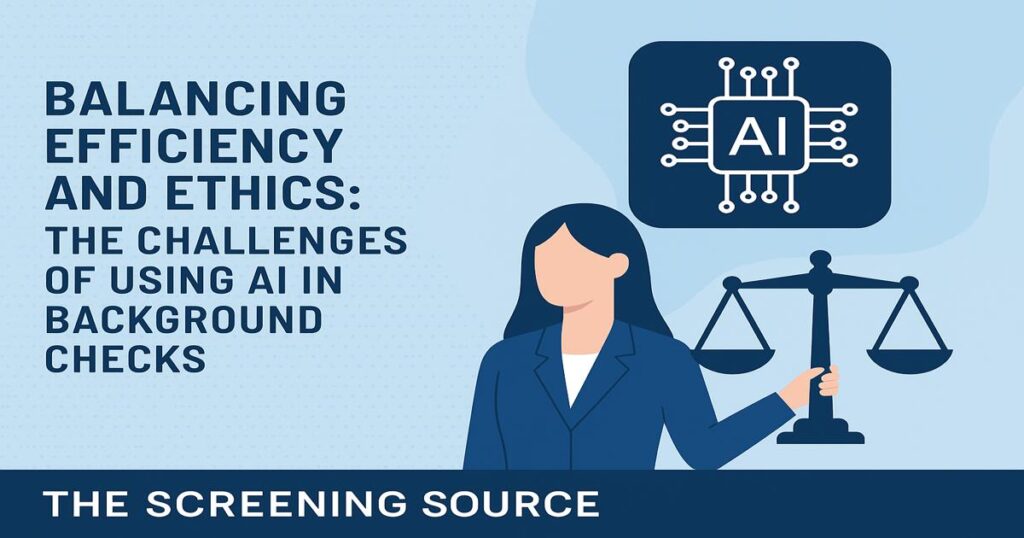
Artificial Intelligence (AI) is transforming the background screening industry — making the hiring process faster, smarter, and more data-driven. But with this new power comes new responsibility. Employers must now balance efficiency and ethics to ensure that AI tools used in background checks remain accurate, compliant, and fair to all candidates.
1. The Promise of AI in Background Screening
AI can quickly process massive amounts of data, verifying employment histories, scanning criminal databases, and cross-checking credentials in seconds. This level of automation saves time and resources, helping businesses make faster hiring decisions while improving overall accuracy.
However, without proper oversight, these same tools can unintentionally create ethical challenges that impact fairness and compliance.
2. The Risk of Algorithmic Bias
AI systems learn from data — and if that data reflects historical bias, those biases can be perpetuated. For example, an algorithm trained on incomplete or skewed information could unfairly disadvantage certain candidates during employment screening.
To maintain ethical standards, employers must ensure that their background check systems are built on diverse, unbiased datasets and regularly audited for fairness.
Resource: EEOC Guidance on AI and Employment
3. FCRA and Privacy Compliance in the Age of Automation
Compliance remains a cornerstone of ethical hiring. The Fair Credit Reporting Act (FCRA) requires employers to provide clear disclosure and obtain written consent before conducting any background check.
Even when AI assists in the process, these compliance requirements do not change. Employers are still responsible for accuracy, transparency, and proper notification of any adverse action.
Learn More: Fair Credit Reporting Act (FCRA)
4. Maintaining Transparency with Candidates
Candidates deserve to know when AI is part of their background screening. Employers who are upfront about using technology in hiring help build trust and reduce legal risks.
Transparency means explaining how AI tools are used, what data is collected, and how results are verified by human professionals before any hiring decision is made.
5. The Importance of Human Oversight
AI enhances efficiency, but humans must remain in control of ethical decision-making. HR professionals play a vital role in interpreting data, ensuring compliance, and catching potential errors or biases that algorithms might miss.
At The Screening Source, LLC, we combine advanced technology with experienced human oversight to ensure every background check is accurate, compliant, and fair.
Conclusion: Responsible Innovation for Safer Hiring
AI-driven background checks represent a powerful step forward — but efficiency should never come at the cost of ethics. By combining responsible technology with human expertise, employers can enjoy faster screening, better accuracy, and stronger compliance — while treating every applicant fairly.
Learn more: https://www.thescreeningsource.com/contact
Related Readings: How Artificial Intelligence Is Transforming the Future of Background Screening
